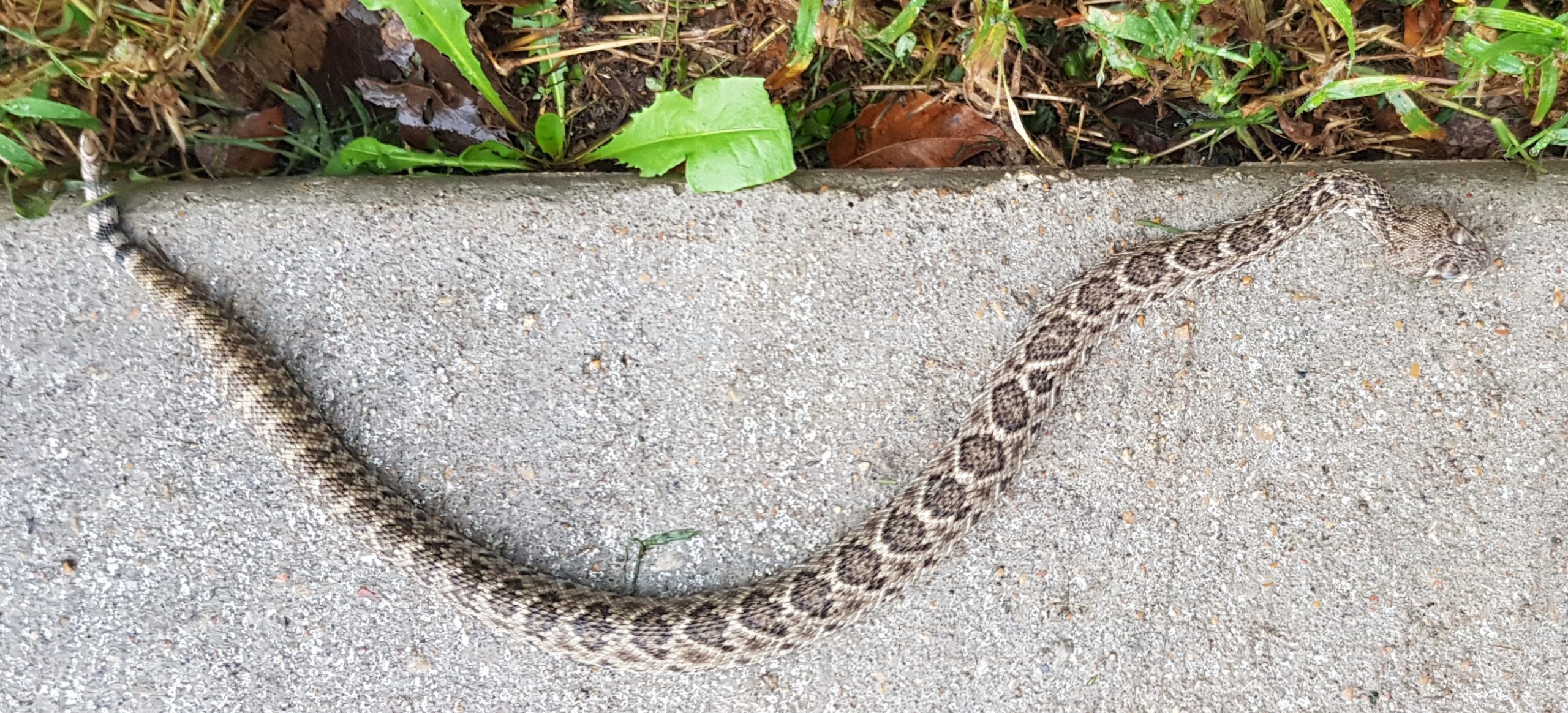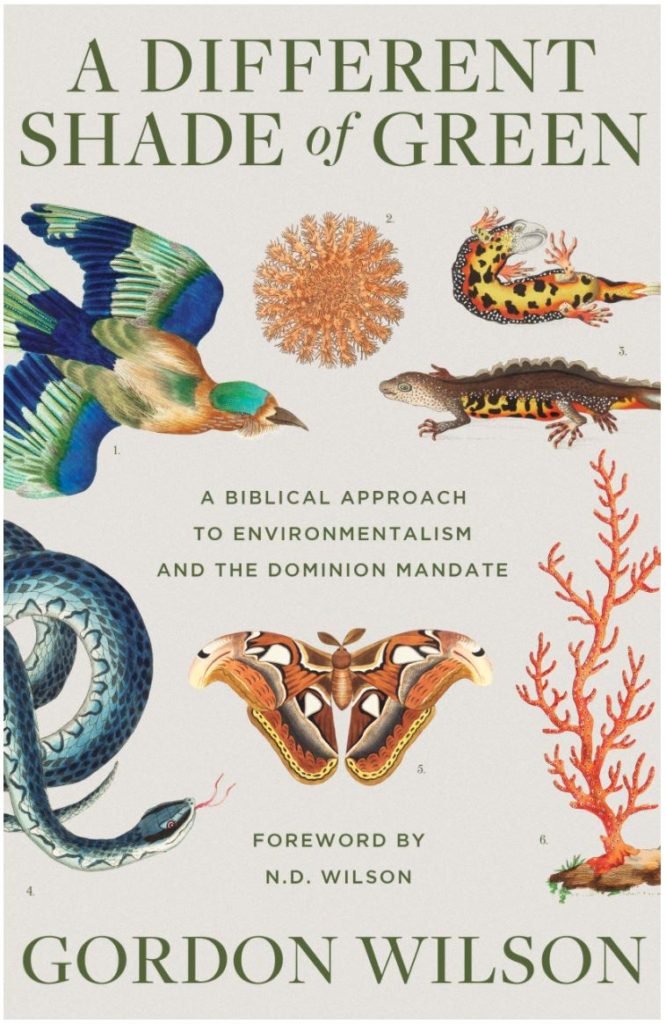Look what I came across on my Sweetwater prayer walk this morning.

This young western diamondback rattlesnake (Crotalus atrox), roughly 50 cm (~1.5 ft) long, was lounging on the sidewalk about 10 m (~30 ft) from the Bosque River. It was a cool, rainy morning and, being an ectotherm, he was lethargic. His eyes were cloudy, indicating he was nearing his next molt.
Among all God’s creatures, great and small, snakes are perhaps the most despised. They are universally feared. Aside from a minority of snake enthusiasts, most people react with instinctive repulsion at the sight of a snake. The same cannot be said of robins, dolphins, pandas, and trout. Interesting.
 It was a snake that Satan animated to tempt Adam and Eve in the Garden of Eden. In 2019, the World Health Organization reported that snake bites kill “…between 81 410 and 137 880” and cause “around three times as many amputations and other permanent disabilities each year.” There may be 500,000 reasons why the members of the sub-order Serpentes have a bad reputation. But does that mean we should kill every snake on sight? Many, many people have told me they kill all snakes, regardless if they’re poisonous. Is that a principal consistent with Biblical wisdom?
It was a snake that Satan animated to tempt Adam and Eve in the Garden of Eden. In 2019, the World Health Organization reported that snake bites kill “…between 81 410 and 137 880” and cause “around three times as many amputations and other permanent disabilities each year.” There may be 500,000 reasons why the members of the sub-order Serpentes have a bad reputation. But does that mean we should kill every snake on sight? Many, many people have told me they kill all snakes, regardless if they’re poisonous. Is that a principal consistent with Biblical wisdom?
In his book A Different Shade of Green, Gordon Wilson views Genesis 1:28 as the “foundational command behind conservation”. Not only are we humans given the dominion mandate by the Creator, but God’s valuation of the creation as “good” must inform our own evaluation of created things, even snakes. Of course, the Fall happened. Man sinned and creation became twisted and hasn’t worked the same since. Man and creation became enemies and the creation was “subjected to futility” while it eagerly waits for the “revealing of the sons of God” (Romans 8:19-23). But does this mean we toss snakes into the bin? God has continued to provide an ecosystem stage on which the redemption story takes place, hasn’t He? If Noah had killed the founding members of the Serpentes animals when he left the ark, would we have Number 21:4-9 and Jesus’ words in John 3:14-15? Look up the verses. Wilson asserts in chapter 2 of Green that:
“Many of our pests wouldn’t be pests if they were in the right place and in the right quantities. Also, some things we consider pests aren’t really pests. We may simply have a strange aversion to perfectly harmless plants and animals, due to their inability to conform to our sense of beauty or utility.”
 Snakes need management, not extermination. Snakes are an integral part of any ecology, predating on rodents and providing food for roadrunners. And even if their role in maintaining a healthy ecosystem for humans to thrive wasn’t sufficient motivation to cherish them, their value as God’s creatures must be considered. Wilson concludes his thoughts with Genesis 1:31.
Snakes need management, not extermination. Snakes are an integral part of any ecology, predating on rodents and providing food for roadrunners. And even if their role in maintaining a healthy ecosystem for humans to thrive wasn’t sufficient motivation to cherish them, their value as God’s creatures must be considered. Wilson concludes his thoughts with Genesis 1:31.
“In short, for the Christian, plant and animal species need not justify their existence to us by having some obvious list of humanitarian benefits they can bestow on society. Nor do they need to have some mysterious, ecological trait that enhances some ecosystem in some subtle way (which they probably do). Neither should it require an advocate to ceaselessly champion their rightful place on earth. Their value is intrinsic and divinely granted at creation. It is not dependent on our attitude toward them. Their innate value and written charter for existence are in the words spoken in Genesis, ‘And God saw everything that he had made, and behold, it was very good.'”
You probably are eager to know what I did about the diamondback snake on the riverwalk. I’ll signal my eco virtue and reveal that I coaxed the rattler off the sidewalk to limit his opportunity to bite a passing jogger, but I didn’t kill him.

I love that quote from Wilson’s book. It provides a good framework for how to specifically apply Genesis 1:31: what God made “good” was not dependent upon our perceptions of beauty or practicality, but its goodness is imprinted by the Creator.
Sometimes this is hard to remember, though, when I’m being attacked by a swarm of mosquitos.